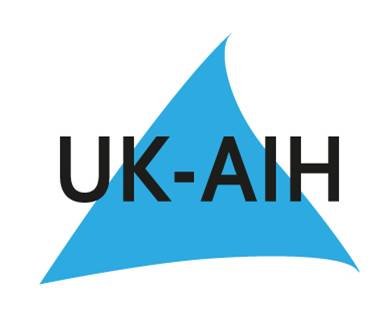N E W S
The current phase of UK-AIH has come to an end and we wanted to take this opportunity to update everyone on the progress we have made. UK-AIH has now recruited 2,317 participants across 55 sites. This is a testament to the immense collaborative effort by all the members of the research teams and willingness of patients to participate in research, without whom the study would not be possible. One of the strengths of UK-AIH is making research accessible to patients across the country, irrespective of where their care is delivered. We also want to thank our funders. UK-AIH was initially set up as an NIHR-funded project (via the Rare Diseases Translational Research Collaboration) but more recently, LiverNorth (a national patient support group), has provided funding so the project could continue.
We believe that UK-AIH has given us some important key real-world insights into how we manage autoimmune hepatitis in the UK. There have been 2 key publications from the cohort to date:
‘The Impact of Autoimmune Hepatitis and Its Treatment on Health Utility’ published in Hepatology (2018;68(4):1487-1497)
- This paper showed evidence of impaired health-related quality of life for patients with autoimmune hepatitis as compared with the general population. This is strongly associated with the use of corticosteroids, independent of remission status, and emphasises the need for better corticosteroid-free therapy approaches and novel therapeutic trials in AIH.
‘Inequity of care provision and outcome disparity in autoimmune hepatitis in the United Kingdom’ published in Alimentary Pharmacology and Therapeutics (2018;48(9):951-960)
- This paper demonstrated significant discrepancies in the care received by patients with autoimmune hepatitis in the UK. A high proportion remain on corticosteroids and there is significant treatment variability. Overall poor remission rates suggest that there are significant unmet therapeutic needs for patients with autoimmune hepatitis.
UK-AIH samples have also been utilised in international collaborative work examining novel autoantibodies, which is a really exciting development (Taubert, Richard, et al. "Quantification of polyreactive immunoglobulin G facilitates the diagnosis of autoimmune hepatitis." Hepatology 75.1 (2022): 13-27). There have also been a number of sub-projects presented at national and international meetings.
The UK-AIH team have also been instrumental on recent work exploring patient priorities in autoimmune hepatitis:
‘Patient priorities in autoimmune hepatitis: the need for better treatments, more education and challenging stigma’ - published in Digestive Diseases and Sciences May 2022.
- This paper showed that 66% of patients perceived medication side-effects and 73% responded negatively about their experience of corticosteroids. The majority would ‘definitely’ or ‘probably’ consider clinical trial participation to improve their care. Only 18·7% reported access to a specialist liver nurse and nearly half were involved in support groups. Interview and survey data suggested that major issues were stigma, loss of control and fatigue. This work provides insights into the realities of living with autoimmune hepatitis with clear issues around lack of support networks, need for patient empowerment and stigma surrounding liver disease. Patient priorities are better therapies to slow disease progression, avoiding corticosteroids and minimising side-effects. Patient willingness to participate in trials suggests that they are achievable provided they have the right design and clinical endpoints.
There are still a large number of exciting collaborative projects ongoing that include the importance of histology, nanostring transcriptomic analysis, longitudinal cytokine analysis and assessing the role of azathioprine metabolites.
We would very much welcome applications from anyone who wishes to utilise the data and samples. The biobank was designed to be a platform for ongoing collaboration and provide researchers and clinicians with a cohort size that cannot be achieved by any one individual centre. Please contact emma.burton@ncl.ac.uk for details about what data and samples are available and how to submit an application to access the data.
We will be in contact soon with details about the next phase of UK-AIH and we hope that many centres will continue to participate in the study going forwards.


